Your provided code have few issues i will explain them to you one by one ,
Passing arrays to functions
To pass multidimensional arrays to functions , I will show you 2 ways to do that
1) Passing multidimensional arrays as single dimensional arrays
This works because we know how array is represented in the memory , and our this knowledge of representation is what makes pointers in C/C++ such a powerful tool .
Read this answer to get a better picture of representation of array in memory.
Arrays are represented linearly and contiguously in memory , thus if define array as arr[5][5] , we are telling compilers that we need a memory block having sufficient space for storing 5*5 = 25 int data types . And it's also worth to know that arrays are represented in row major form , read this to learn more about row major form.
 .
.
Elements(here ints) are filled in the way as described by the zig-zag line in the picture .
Thus in our example array int arr[5][5],
2nd element of the 1st row(arr[0][1]) can be accessed by *(arr+0*5+1) , as arr gives the base address of the array , similarly , 4th element of 5th row (arr[4][3]) can be accessed by *(arr+4*5+3) , here we are multiplying row index by 5 because each row have 5 elements(that is number of columns) , with this knowledge in mind we can write code to access array elements of a matrix in the following way
void display(int *arr,int r,int c)
{
for(unsigned i=0;i<r;++i)
{
for(unsigned j=0;j<c;++j)
{
cout<<*(arr+i*c+j)<<ends;
}
cout<<endl;
}
}
const unsigned ROW=3,COL=3;
int main()
{
int arr[ROW][COL]={1,2,3,
4,5,6,
7,8,9
};
display((int *)arr,ROW,COL);
}
While calling the function , casting arr to (int *) is necessary because originally arr type is int (*)[3] , that is pointer to an int array of 3 elements .
2) Passing multidimensional array as pointer to an array in the function argument .
const unsigned ROW=3,COL=3;
void display(int (*arr)[COL],int r,int c)
{
for(unsigned i=0;i<r;++i)
{
for(unsigned j=0;j<c;++j)
{
cout<<arr[i][j]<<ends;
}
cout<<endl;
}
}
int main()
{
int arr[ROW][COL]={1,2,3,
4,5,6,
7,8,9
};
display(arr,ROW,COL);
}
In this , there is no need to cast the arr
Index out of bounds
In your code you are not taking care of array index going out of bounds , if your array is int arr[5][5] and you try to access arr[-1][5] or arr[5][3] , the result will be undefined , that is anything can happen from your code just crashing to your system going up in flames(just a metaphor) .
Keeping these things in mind , a working code satisfying your needs is
int count(int *t, int r, int c)
{
int i, j, result = 0;
for (i = 0; i < r; i++)
{
for (j = 0; j < c; j++)
{
if(i!=r-1)
{
if(*(t+i*c+j)==*(t+(i+1)*c+j))
++result;
if(j!=r-1)
{
if(*(t+i*c+j)==*(t+(i+1)*c+j+1))
++result;
}
if(j!=0)
{
if(*(t+i*c+j)==*(t+(i+1)*c+j-1))
++result;
}
}
if(j!=c-1)
{
if(*(t+i*c+j)==*(t+i*c+j+1))
++result;
}
}
}
return result;
}
const unsigned ROW=3,COL=3;
int main()
{
int arr[ROW][COL]={1,1,2,
1,2,3,
4,5,2
};
cout<<count((int *)(arr),ROW,COL)<<endl;
}
